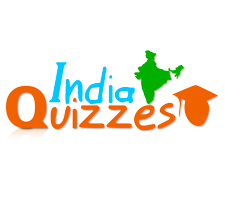I.Morley-Minto Reforms Act
II.Transfer of the capital from Calcutta to Delhi
III.First Worl War
IV.Lucknow Pact
The correct chronological order of these events is : The right to constitutional remedies allows Indian citizens to stand up for their rights against anybody even the government of India. Which article says this? The title “Sparrow” is given toPick the wrong one out: Who is the newly appointed CMD of Oil and Natural Gas Corporation (ONGC)? The earliest evidence of Banking transactions in India comes from __: Which of the following ‘Veda’ deals with medicine? Who among the following Sultans received the title of ‘Syed-us-Salatin’ from the Caliph? GK quiz set 939 – free online quiz exam to score maximum in general awareness part of exam. Objective general knowledge for SSC.
- Gunaraja
- Avanisimha
- Maharaja
- Siladitya
- Ashoka
- Kalasoka
- Ajatsatru
- Kanishka
Explanation:
The Fourth Buddhist Council was held at Kundalvana, Kashmir in 72 AD during the reign of Kushan king Kanishka. It was held under the Presidentship of Vasumitra to compose commentaries on the Tripitika.
I.Morley-Minto Reforms Act
II.Transfer of the capital from Calcutta to Delhi
III.First Worl War
IV.Lucknow Pact
The correct chronological order of these events is :
- II-I-III-IV
- I-II-III-IV
- II-I-IV-III
- I-II-IV-IV
The right to constitutional remedies allows Indian citizens to stand up for their rights against anybody even the government of India. Which article says this?
- Article 31
- Article 32
- Article 33
- Article 34
Explanation:
Article 32 provides the right to Constitutional remedies which means that a person has right to move to Supreme Court (and high courts also) for getting his fundamental rights protected. While Supreme Court has power to issue writs under article 32, High Courts have been given same powers under article 226
- Sardar Vallabhai patel
- Rajinder Singh
- Nelson Mandela
- Porus
Pick the wrong one out:
- Sutlej originates from Rakas Lake (connected to Mansarovar Lake)
- Ravi Originates from Rohtang pass in Himalayas
- Jhelum originates from south eastern part of Kashmir
- Chenab originates from confluence of two rivers, The Chandra and Beas
Explanation:
The Chenab originates from the confluence of two rivers, the Chandra and the Bhaga, which themselves originate from either side of the Bara Lacha Pass in Lahul. It is also known as the Chandrabhaga in Himachal Pradesh. It runs parallel to the Pir Panjal Range in the north-westerly direction, and cuts through the range near Kishtwar. It enters the plains of Punjab near Akhnur and is later joined by the Jhelum. It is further joined by the Ravi and the Sutlej in Pakistan
Who is the newly appointed CMD of Oil and Natural Gas Corporation (ONGC)?
- Shashi Shanker
- Nirmala Kaur
- K S Rajput
- Dinesh Sarraf
Explanation:
Shashi Shanker has been appointed Chairman and Managing Director of India’s biggest oil and gas producer, Oil and Natural Gas Corporation (ONGC) till March 31, 2021. Currently, he is director (Technical and Field Services) at ONGC and will take over the charge as CMD from October 1.He will succeed Dinesh K Sarraf, who retires on September 30.
- Vedic Era
- Maurya Era
- Gupta Era
- Medieval India
Explanation:
Earliest evidence of Banking in India is found from the period of Vedic Civilization. During those days, loan deeds called rnapatra (ऋणपत्र) or rnalekhya (ऋणलेख्य) were prevalent. Interest rates as well as usury (सूदखोरी) was prevalent in Vedic India. The Vedic word Kusidin refers to an usurer (सूदखोर).This term is also found in Manusmriti.
- Atharva Veda
- Yajur Veda
- Sama Veda
- Rig Veda
- Iltutmish
- Balban
- Alauddin Khilji
- Firoz Shah Tughlaq

